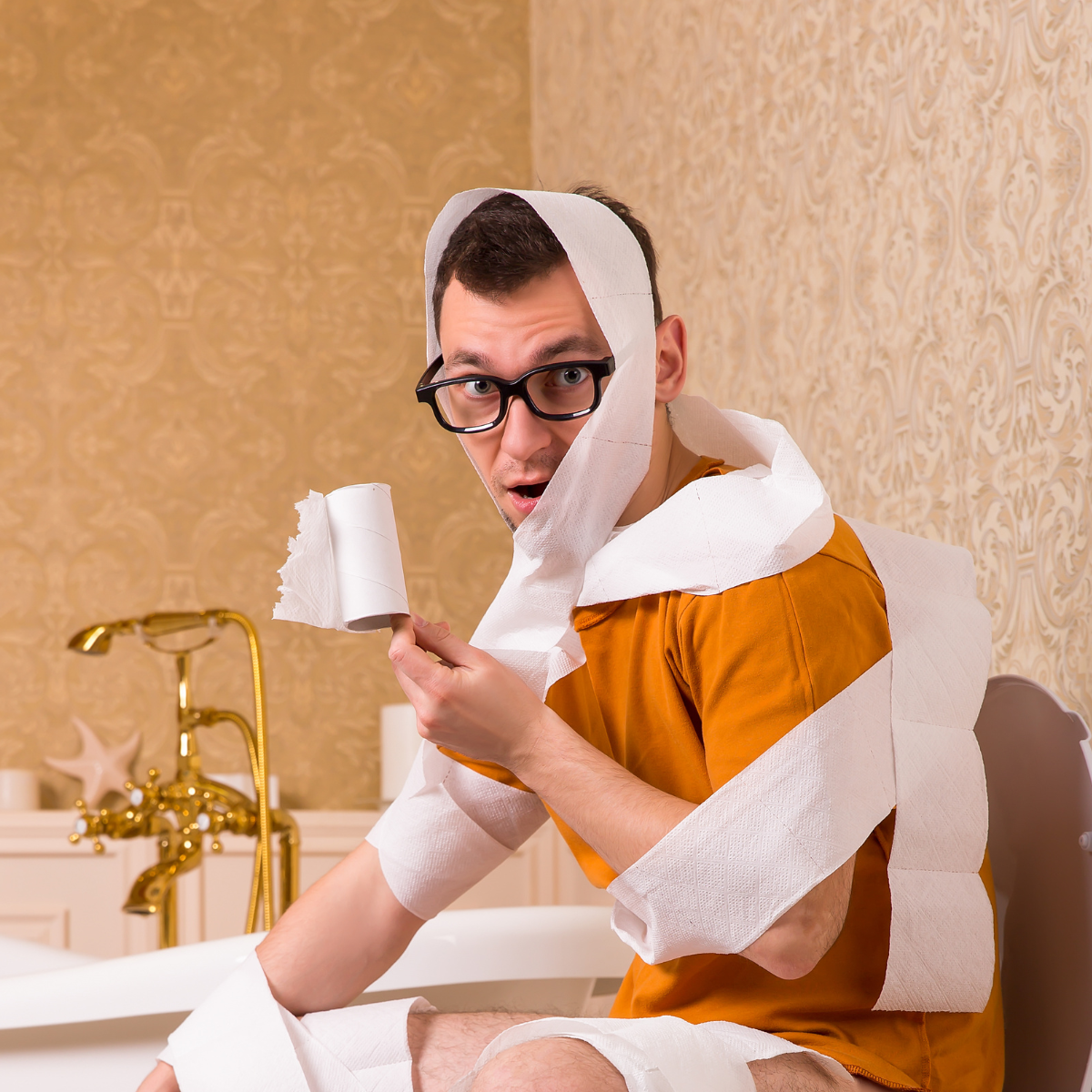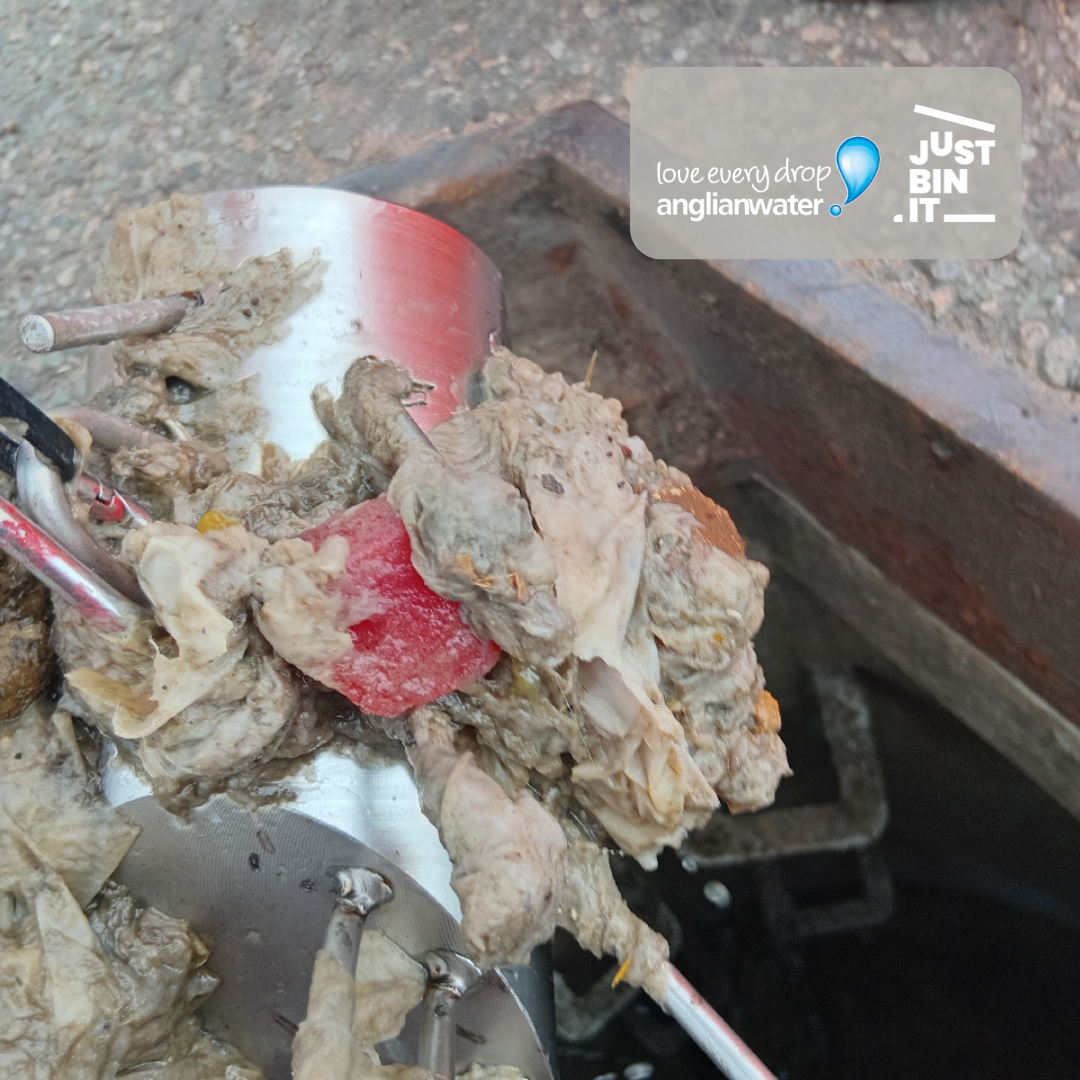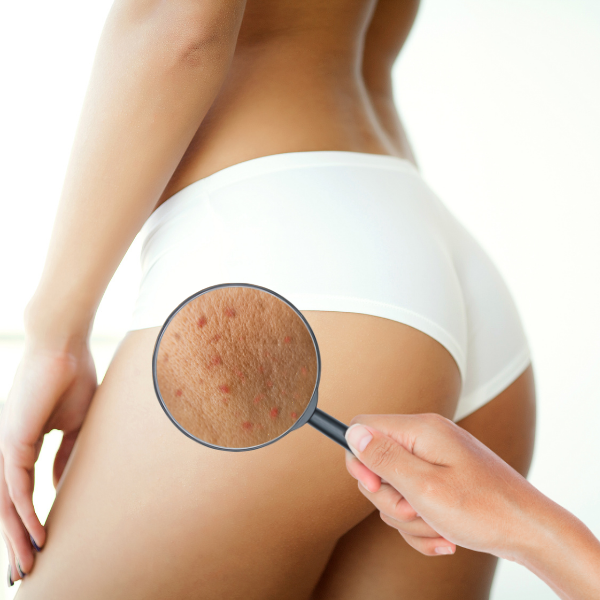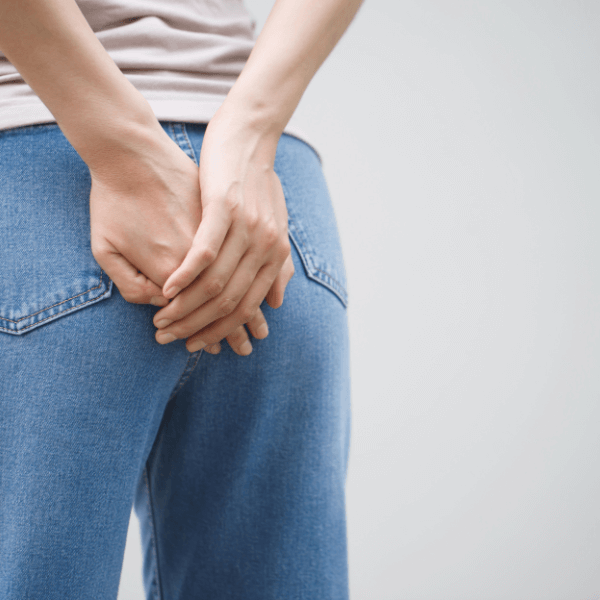As*k an expert: Why do I have to wipe endlessly after I poop?

As*k an expert: Why do I have to wipe endlessly after I poop?

At Wype, we're rolling out our cheeky new series, 'Ask an Expert', where we dig deep into butt health with top medical pros. Kicking things off is Lucy Allen, a pelvic health physiotherapist who's a whiz at sorting out digestive and pelvic floor woes for men and women. She’s not tied up in our storeroom, we promise! Lucy's all about empowering folks to tackle their below-the-waist challenges. So, get ready for some rear-ly good advice.
Let’s jump right in.
Why does it sometimes feel like we have to wipe endlessly to get clean?
When we wipe, most of us have a common goal in mind. Get it done as quickly as possible whilst getting the best clean we can (unless you’re taking your well-deserved poop on company time, that is). But all in all, we’re aiming for a ‘wipe till it’s white’ attitude.
However, sometimes the crayon never seems to run out, does it? And you might feel like you’re spending far too much time on that particular diary entry, after having said everything you needed to say on the (brown) matter.
Forget brown though, extensive wiping can have us (and our cheeks) seeing red. It can get super frustrating when we just keep wiping and wiping to no avail, only to rub ourselves raw.
So why does this happen? More importantly, how do we get rid of the eternal wipe?
5 reasons for endless wiping after a bowel movement
Things need firming up down there
Ah, loose bowels, the perfect icebreaker on your first day of a new job!
Although not the most appetising conversation, it is one we should be having when it comes to seemingly endless wiping. Diarrhoea can occur when we’re just not reaching that daily 30g of fibre intake, or sometimes due to medical conditions such as IBS, Crohn’s Disease, or Ulcerative Colitis.
It's not always loose bowels that can cause the issue! If the poop is quite sticky it can leave behind a bit of a coating on its way out which is hard to clean and leads to more wiping.
If you experience diarrhoea for longer than 7 consecutive days, it’s a good idea to pop down to your GP and have a chat to see what’s what.
You’re wiping with dry toilet paper
Toilet paper alone might be doing more harm than good for your chocolate starfish. Although it will remove most of the debris, it generally just smears everything around whilst leaving a residue on your backside. Not to mention that excessive and rough wiping with dry toilet paper can lead to micro-dermabrasions, which cause itchiness and soreness.
You didn’t completely empty your bowels
We can get a bit cautious of sitting on the toilet too long, what with the risk of piles etc, we can’t be blamed! However, when we cut that trip to a sweet relief short, we can leave some ‘personal belongings’ behind which makes it harder to get 100% clean.
So besides making sure we don’t sit on the loo for too long, 5-15 minutes ideally, we should also be aiming to finish the task at hand completely. It’s a skilful art to find the happy medium, but we’re rooting for you! Just relax, lean forward and let your bottom do its job!
Haemorrhoids
Wype has touched on the good ol’ haemorrhoids before with Dr James Kinross, so if you need a (gentle) scrub up on the topic, check it out here!
80% of us will experience haemorrhoids in our lifetime, so perk up those ears for this one! When we have piles swelling can occur in certain places, meaning it’s possible that our back passage won’t be able to close completely. Because of this poop gets a bit ‘splodged’ and can leak out even after we’ve finished a bowel movement leading to a greater need to wipe more.
Faecal incontinence
Faecal incontinence may sound arcane, probably because it isn’t widely discussed. This type of incontinence exists on a spectrum, so don’t think the whole pie is falling out of the oven every time, sometimes it’s just a few crumbs. To be more specific, it could be incontinence where someone may be unable to control their bowel movements in a minor way or perhaps get to the toilet in time, or it could be a complete loss of bowel control where there is no sensation before a bowel movement, also known as passive soiling. As hush-hush as it is kept, FI (a more table-friendly moniker) can affect 1 in 10 people, and it can be really tough to come to terms with the challenges that it comes with.
The topic of passive soiling should be handled with care, seeing as it affects the quality of life of so many. So, we’ll hand things over to our expert, Lucy, for now.
From the Expert: What is passive soiling?
Passive soiling is when someone has little or no sensation that some poop has passed. It can be caused by multiple aspects, such as weak sphincter and pelvic floor muscles, nerve damage, chronic constipation, incomplete bowel emptying or loose stools. You might find there’s more to wipe when you go for a wee, even though you cleaned thoroughly after the last poop or there’s a unexpected smearing in your underwear.
This can substantially affect a person’s quality of life, as simply getting to the toilet in time, or not knowing when you need to GO isn’t a reality for everyone. Opening the conversation on the matter is a great first step to allowing those experiencing faecal incontinence to seek the right help when they need it. There are a lot of simple techniques that Pelvic Health Physiotherapists trained to help bowel issues can do to help and it most cases it completely gets rid of the soiling!
What to do if you think you’re experiencing passive soiling
Diet Changes:
If you are experiencing passive soiling and your poop is on the sticky side trying to increase the fibre that bulks things up really helps. More bran-based cereals or Psyllium husk is my go-to. Think a type 3 poop on the trusty Bristol Stool Chart! If you manage to achieve this, I guarantee the soiling will be much improved if not resolved. The softer and stickier the poop, the more that gets left behind on the way out, particularly with haemorrhoids in the way, so a firm but easy-to-pass poop and things should get better.
Bowel Training
How we poop makes a big difference to that feeling of satisfaction after we have emptied. There are different techniques I teach depending on symptoms and examining how the muscles are working.
But as a simple starting point:
- Relax and rest forward on your forearms on the toilet
- Don’t hold your breath
- If you need to give a little effort to start or finish, then gently push down into your anus
- Don’t push straight down as this can put pressure in the wrong place and you’ll lose a bit of eumph!
- Take your time! It's hard when life is busy but give yourself a bit of time to allow your bowel to empty properly. This should be done in 5-15 minutes.
Pelvic Floor Exercises
Sometimes we get passive soiling because the muscles that control the bowel have become weaker. This happens to all of us with age but constipation, childbirth and surgeries to the area all contribute to it weakening.
There are many ways to strengthen the pelvic floor and anal sphincter but as a good starting point try these:
- Sitting down
- Tighten your anus as if you are trying to keep hold of wind
- Imagine it lifting up inside
- Hold for up to 10 seconds
- Rest for 5 seconds
- Repeat 10 times a couple of times a day
If when you relax you don’t feel the anus relax you’ve not held for as long as you thought so, try a shorter hold and build up from there!
Key things to look out for that you aren’t doing it quite right are your bum cheeks joining in so you end up bouncing on the chair, no raised eyebrows, keep normal breathing and your stomach shouldn’t join in too much!
There is video on my website of me talking through this if the link is helpful: https://lucyallenphysiotherapy.com/videos/
Treatments
There are other treatments that we can offer in clinic to help with passive soiling if these tips aren’t quite enough. Have a chat with your GP for look for a local Pelvic Health Physiotherapist with bowel training for more information.
How to keep wiping quick yet effective
Tired of unravelling an entire roll of toilet paper just to unravel a fully clean feeling? Want to keep that sphincter sting free? Continuous wiping isn’t good for the booty or the soul, so follow these steps to get that effective yet gentle clean:
- Up the fibre intake to 30g a day
- Drink enough water (8 glasses a day if you can)!
- Get that body moving
- Give yourself enough time to get the job done (not too much time though)!
- See a doctor if things stray from your normal
If you’re finding that toilet paper alone isn’t doing the job, or maybe you're wiping so much you end up sore on the seat, why not try Wype? Wype gives you a gentle yet effective clean, whilst using ingredients like aloe vera & chamomile to soothe, moisturise and calm the skin (especially with the aftermath of TP carpet burn). The sensitive skin around your tushy deserves care and attention, so let Wype give you the TLC (Tushy Loving Care).
Got a question you want answered by one of our experts of the bowel and butt? Ask them here!




Thank you so much Wype, for doing your best at helping to explain about embarrassing topics. You give out information that I’ve not seen before & it’s been very helpful. Like any other part of our bodies that need attention to keep us clean & healthy, your help is very supportive & helps to ease the street of talking about possible problems with our bottoms !
I have just been recommended to try your products by a pelvic health physiotherapist. I’ve placed my first order and look forward to trying it out!
Great tips! love to read your funny way of explaining everything makes it less of a sensitive subject, bought two starter packs and am converting my friends n family one butt at a time! X
Informative and helpful. I was only wondering why I’ve started the endless wiping lately and then this pops up in my latest email from you. Good timing.
Thank you for the excellent sensible advice handled with both humour and sensitivity.
As a previous commenter said we need this information to be shared in nurseries schools colleges and workplaces.
We all poo just like we all die and at least death being talked about a bit more now.
It’s time for poo talk!
So glad you talk about wiping after poo-ing so openly and clearly. Very useful and reassuring.
Thank you for these very down to earth and easy to understand articles. How refreshing to find ‘taboo’ subjects openly discussed in such a relaxed manner!
Thank you from the ‘bottom’ of my heart for normalising a distressing and secretive health issue. After years of suffering from PS (didn’t even know it had a name!) I’m finally receiving the help I need from a colonal rectal specialist. I had to go private for the initial consultation but it was worth every penny. I am now being treated on the NHS and am hopeful about a resolution to my problem.
I find this information informative and fun. Thank you for talking about bottoms and pooing in a relaxed way, we all do it and it should be a topic that we can openly discuss .
I found this article really interesting and informative. Thank you very much, truly helpful!
Get these messages, in these formats, out to nurseries, primary schools and even high schools! Stop it being a taboo subject. Small children are reliant on their parents’ teaching and sadly most of the parents have no clue as they were dependent on their parents and so on.
Your articles are just so interesting and informative, I can’t thank you enough.
These blogs are so informative and fun – thank you for talking about toilet habits as it’s important 💩
Thank you Wype. Another informative piece filled with humour and expertise, helping to break down the taboos and support us all with general, everyday toileting issues. A pleasure to read and to learn from.
Brilliant idea…informed information given in a ‘cheeky’ way…by real experts.
I’m so glad I’m signed up to these. You tackle all those sorts of things that people probably ponder, but don’t know where to turn to, in an adult, yet still humourous way.
Brilliant idea of covering topics that people find embarrassing in a straightforward manner. Well done.